Difference between Plug-ins and Modules
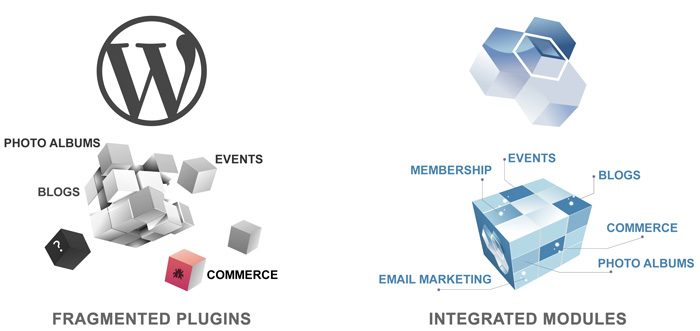
If you are new to Joomla, then you need to know the difference between modules and plug-ins. These may seem similar to the untrained eye, but they are as different as night and day. Let’s take a look at each in detail.
What are Modules?
Modules are basically flexible extensions in Joomla that are used to render pages. Also known as boxes, these are arranged around the components of each page such as the log-in module. Each one is assigned to a menu item so you can use them to hide a module according to the page you are currently on and some are assigned specific components. For instance a ‘latest news’ module will be linked to com_content and will also sport links to the latest content pieces. On the other hand, you do not have to link modules to components or anything for that matter. They can be used as static HTML or text.
Why You Should Use Drupal for a CMS Website

From personal website to community portals, Drupal has been helping site owners make an impact online ever since it was launched. Offering more than 2,000 themes and design options as well as 20,000 modules, it’s loved by both owners and developers alike. In fact, it serves as the back-end infrastructure for several notable custom websites on the World Wide Web today.
Besides the above mentioned, the following are some of the main reasons why this CMS platform is making waves in its industry:
Highly Customizable – With its vast number of themes, designs, layouts and ease of operation, Drupal designers and web developers have a smorgasbord of choices when it comes to creating custom websites. This includes addressing complex client requirements.
Allows Rapid Deployment – Regardless of complexity, this CMS allows business owners and companies to launch functionalities and core features easily and quickly. Using Drupal, developers can also make changes to their creations even after deployment, which is critical post feedback and when making tweaks according to business requirements.
Pros and Cons of Using Drupal

Drupal has come a long way from its humble beginnings as a simple, open source CMS platform. It has effectively evolved into a strong web development program loved by programmers and developers alike. It’s widely used in 200 countries across the globe, is available in more than 180 languages and is used by the likes of Sony Music, Ubuntu and even the White House!
However, just like any tech, Drupal also has its fair share of downsides along with benefits.
The Pros…
- Customizable – Drupal has a number of design features and development tools that programmers absolutely love. Besides literally 1000s of readymade and customizable themes and templates, it has the ability of streamlining web development. This has proven quite handy for developers, especially those who have to maintain an online presence for ever-changing brands.
- Feature filled – The CMS platform comes complete with a number of features that are designed specifically to cater to serious developers. This includes a comprehensive menu, system admin, RSS feeds to name a few and which can be used to manage large websites as well as blogs. This includes the ability to create new user accounts quickly, which can be tweaked for custom permissions for users.
Joomla vs. Drupal – Which is Better?
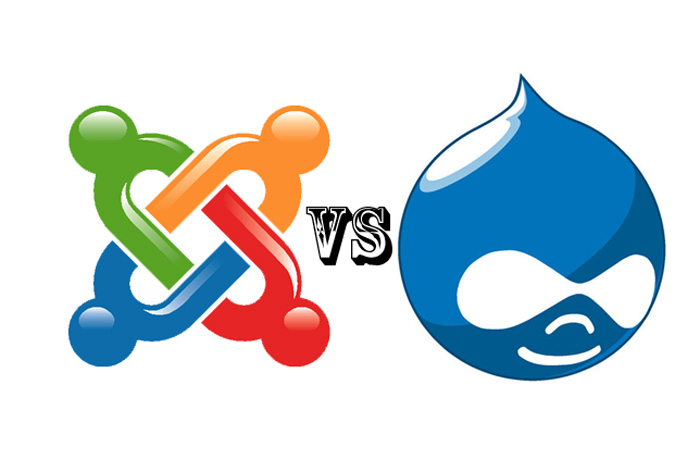
Joomla and Drupal may be considered some of the best open source content management software out there, but the one you choose should be based on your specific requirements. Even though they are similar in several aspects, they differ in the type of content they can effectively manage. Of course, that is not to say that either is better than the other, but it’s better to look at what you need first before downloading either one. The following guide can help you narrow down your choice:
Drupal is Best for…
Even though large brands such as Yahoo!, McDonalds and Best Buy use Drupal, they use other software for their main websites. For instance in Yahoo it is used to manage style guides, while it is used to manage Best Buy’s online magazine. It is also preferred in the education sector by universities such as Duke, Stanford and Rutger to name a few who use it for their mail site. In fact, MIT also uses it to manage its media lab since it is very easy to use. The CMS may not be suitable for everybody, but it is still popular with those whose skills are not technically strong.
How to Choose between CMS platforms

Choosing a content management system (CMS) that can fulfill all of your requirements can be a challenging endeavor. Without clear cut requirements, you might be tempted to download the first one that has the fanciest features! The following analysis will help you narrow down your choices to pick an appropriate one:
Check Functionality
Now when most people are looking for a CMS, they look for one that can help them edit, organize, create and manage content on their websites. This is an incorrect assumption since not all content management systems are capable of all of those features. For instance, not every blogging platform allows users to manage pages in a hierarchy. Some even go so far as to post blogs at random or according to date. This may be ideal in certain circumstances, but this limitation can be quite frustrating if you wish to say, post a large DIY tutorial in one go.
Your job is to first ascertain what you need from your CMS along with the basic features you need to make changes if necessary. Be wary of those that do not allow you to accomplish core tasks such as structuring and organizing pages. There are literally thousands of such open source software out there and you will need to test a couple out before sticking to one.
5 Benefits of Using Open Source Software
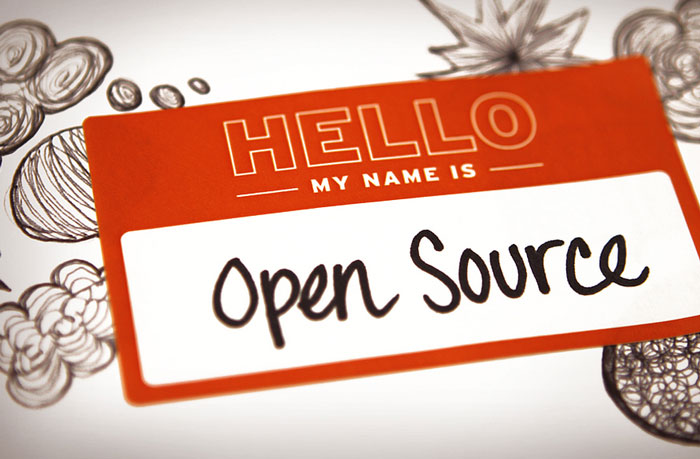
As more and more businesses and government entities opt for open source software such as Linux, it’s clear that the platforms have more to offer than meets the eye. Perhaps its definition can best be explained if we take a look at the benefits it offers.
Flexibility
As the name implies, open source software is open to all, meaning that its code can be accessed by anyone who wants to make changes in it. In other words, no single company owns it and any business can create their own software without facing copyright issues. It is easy to manage as well and can be outsourced to multiple vendors thus eliminating entry and exit barriers. Plus, you can always choose another vendor if the one you chose does not pan out.
Quick Deployment
Consumers can launch new software solutions in days rather than the years it used to take before. Software that is created using it can be tested prior to deployment and is quite beneficial when it comes to collaborations between two entities and experimentation. Additionally, developers can anticipate the needs of existing and potential users with the results they receive from the number of tests that they will be able to do.
Securing Your Website through Expressionengine
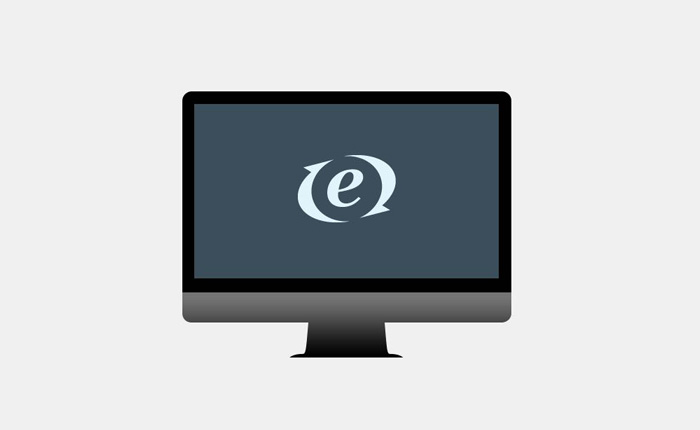
Internet security has become a growing concern for users and breaches are even more alarming when it comes to conducting businesses online. ExpressionEngine provides users security elements that are most inclusive and broad, comprising of highly developed features that can carry out business without having to worry about security breaches.
Security has never been an issue for ExpressionEngine users for almost a decade and it has only had one security advisor in the span of three years. The data you use on this CMS is bound to be safe because of the following features it offers:
Managing Session and Processing Forms
Depending on the security needs of your business, ExpressionEngine is secured by three separate session management systems. Choice on the type of session depends on the control panel and public sites. Duplicate submission of forms and spamming are prevented by allowing single submission of forms for each page.
Understanding WordPress

If you have a blog, the best thing to do is to maximize its readership through a CMS such as WordPress. Over the years, the portal has evolved into a state of the art blogging platform that can be used to create, edit and publish highly customizable content in real time.
If you have used WordPress even once then you know that in order to access your account all you have to do is log into your administrator dashboard using ‘your-site/wp-login.php. You can easily upload new content, modify old blogs or publish new, install plug-ins, themes etc. However, have you ever thought how you can maximize its potential?
The ultimate aim of the CMS is to generate HTML pages on a dynamic basis which is why an HTML page and web page are considered synonymous with each other. WordPress uses SQL and PHP to store data and the PHP code makes up the core for the CMS while the database makes up its memory. Each installation of WordPress gets its own database and the following information you enter is stored there:
Is ExpressionEngine right for your business
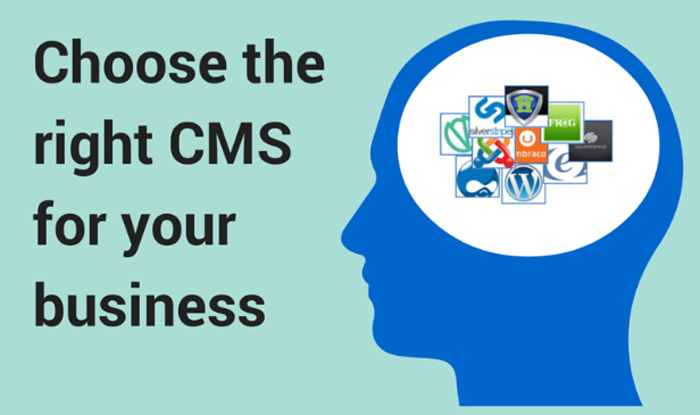
If you are an up and coming entrepreneur, then you know your business website is a virtual expression of your brand for the masses. ExpressionEngine (EE) is a CMS that took this fact to heart and made it evident with its flexible and scalable solutions. Using this open source software, you can express your brand message in almost any way you want utilizing the innumerable features EE offers. However, just like any other CMS, this one also has some features that might not prove as lucrative.
Useful Features
ExpressionEngine offers a limitless list of features but some of the important ones are:
- Image management
- SEO friendly URLs
- Ability to create multiple categories
- Add sticky posts
- Status creation for posts
- RSS and ATOM Syndication
These are self explanatory, but other features deserve a proper introduction, such as EE’s
Template Engine and Commenting System – Creating a website will be easy if you depend on the template engine’s innumerable tags. Besides this, you can sustain a healthy social experience for commenters by allowing new ones to join in key discussions via the commenting system.